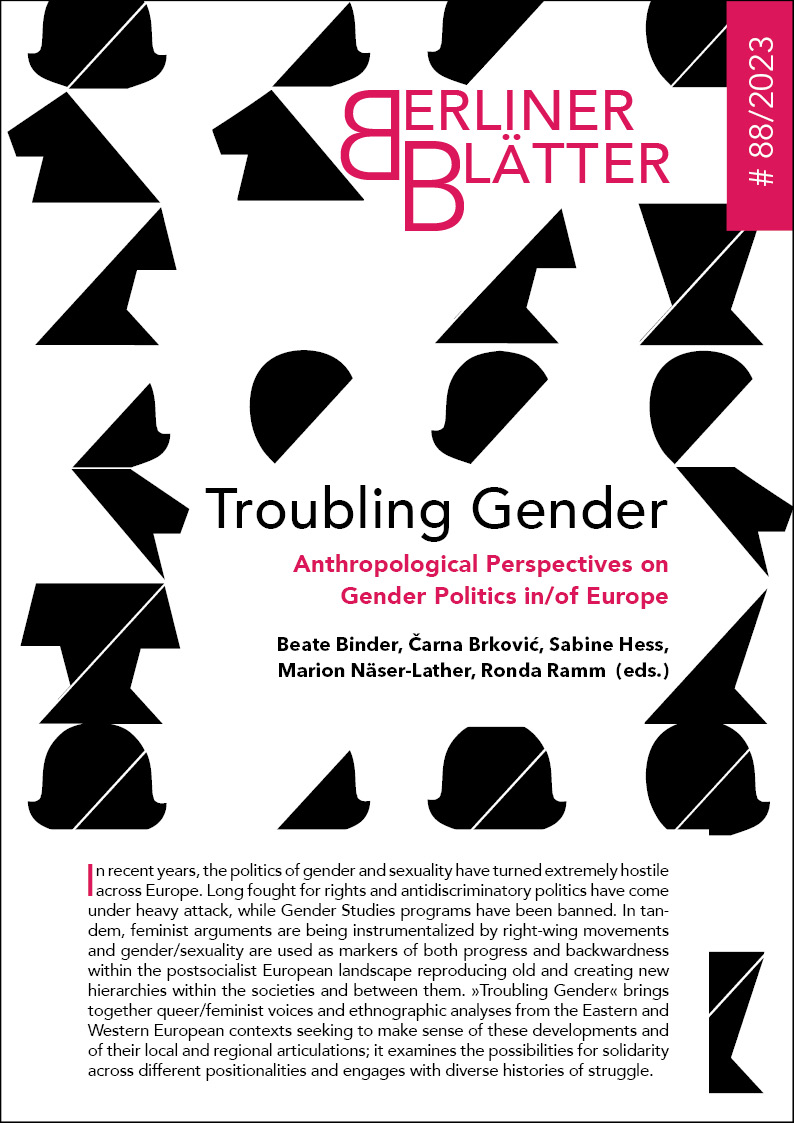Queering Europe
Anthropological Perspectives in Conversation. A Text Collage by Jens Adam, Beate Binder, Čarna Brković and Patrick Wielowiejski
DOI:
https://doi.org/10.18452/27982Keywords:
Europe, Europeanization, Queer Theory, Futurity, critique, Queer EthnographyAbstract
Starting from a fishbowl discussion which has taken place at the conference, this paper discusses what can be gained from thinking across genderqueer theories and anthropological Europeanization research. It argues that thinking queerly includes a skepticism towards identitarian and normative understandings of Europe, as well as an ethnographic attention to that which emerges in the gaps and cracks of Europeanization, while keeping in mind the ways in which institutions working in the name of Europe generate heterogeneous experiences resulting in unequal and differentially distributed, multiple Europes. ‘Queering Europe’ oscillates between an emphasis on the central role of the sexual and the gendered in imaginations of Europe and destabilizing notions of Europe in a more general sense and is as such closely related to post-/decolonial approaches. This analytical move has three dimensions to it: Firstly, queering Europe aims at deconstructing hegemonic imaginaries of Europe. Secondly, it makes visible the pluralistic and fragmented nature of Europe(s) and the ambivalent and sometimes unforeseen consequences processes of Europeanization are accompanied by. Thirdly, queering Europe can be envisioned as a way of imagining and thinking Europe through a “critical utopianism” (Mbembe 2019) that puts solidarity center stage. In all three dimensions, an ethnography informed by decolonial critiques as well as by proposals for queering methodologies constitutes our chosen epistemological tool to gain deeper insights into queering Europe as a mode of knowledge production and political vision.
Downloads
Published
How to Cite
Issue
Section
License
Copyright (c) 2023 Berliner Blätter

This work is licensed under a Creative Commons Attribution-NonCommercial-ShareAlike 4.0 International License.








